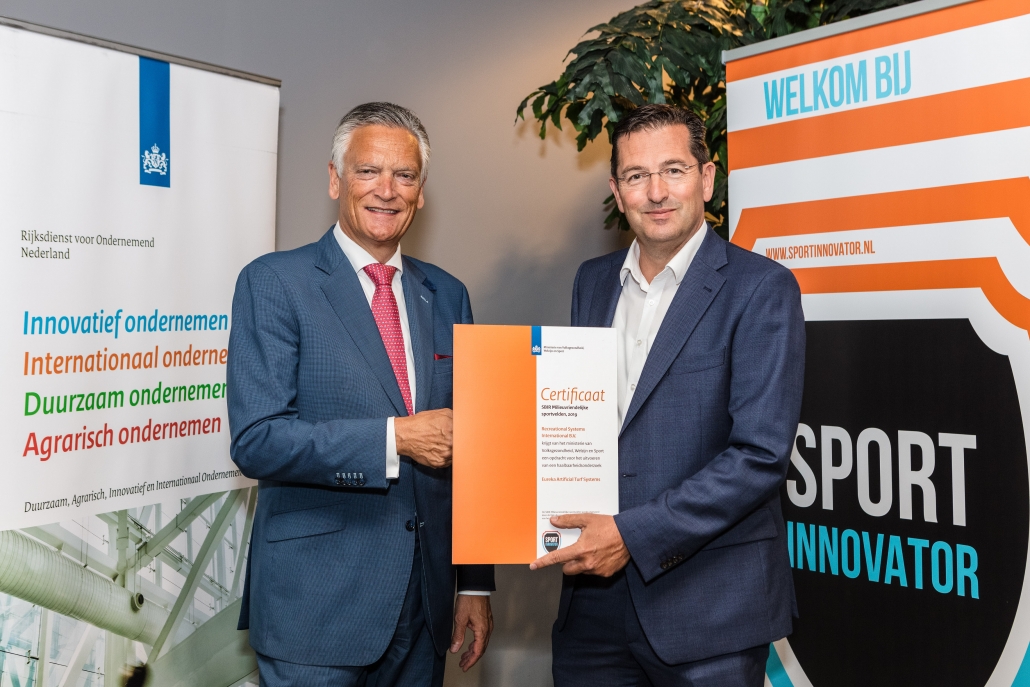Dutch government tasks Recreational Systems International (RSI) with developing a truly 100% circular artificial turf.
RSI has won a tender by the Dutch government to develop the artificial turf systems of the future. The new systems will be 100% recyclable, while also meeting the quality standards defined in the Quality Programmes issued by FIFA, World Rugby and FIH.
The Dutch Ministry of Health, Welfare and Sport (VWS) published a tender for ‘sustainable sports fields’ earlier this year. Together with its consortium partners DSM-NIAGA and NEXTECONOMY, RSI submitted a proposal for introducing a new raw material that will revolutionize the artificial turf industry, reflecting their a zero waste philosophy.
“We will introduce a compound that will be stronger than the polypropylene that is currently used for the backing, that is as friendly to the skin as the polyethylene currently used for the fibers, and that is as secure as the latex currently used for fixing the fibres to the backing,” says Arnoud Fiolet of Recreational Systems International (RSI).
Furthermore, the RSI Monomere concept project will deliver an artificial turf field that can easily be recycled into a new artificial turf field at the end of its economic lifespan. “It will be much easier to recycle an artificial turf field when it is made of just one high-end and non-degenerative material. At the end of its lifespan it will be possible to convert the recovered material into granules that can be used to manufacture artificial turf again. The product will become a truly 100% circular product as the material we will use does not degenerate,” he adds.
The polypropylene, polyethylene and latex currently used in most artificial turf systems are degenerative materials that are difficult to separate. The materials cannot be mixed when producing new high-end products.
Owners of artificial turf in most countries in Europe are left with no other option than to send the old turf to landfills or incinerators which results in unnecessary CO2 emissions. In the few countries where a recycling industry for artificial turf exists, the materials can only be used for the production of lower-quality products such as picnic benches and kick boards. This problem is exacerbated by the absence of technology that allows for artificial turf to be recycled in artificial turf.
Follow-up
In June this year, RSI and its consortium partners was one of the few organizations that were awarded funds by the Dutch government to do a feasibility study into solutions for ‘more sustainable sports fields’.
“It is a challenging quest to ensure that we are going to get artificial turf systems that meet all the strict requirements of clubs, players and the governing bodies without compromising on the quality and durability of an artificial turf system. That is why RSI will continue collaborating closely in this research with the various suppliers of raw materials, researchers and other specialists who focus on the quality of artificial turf.”
As well as adhering to the stringent quality requirements dictated by the various stakeholders, RSI and the consortium partners will also pursue introducing a product that is affordable to any club or school that is keen to have an artificial turf surface.
“RSI and its consortium partners strive day in, day out to deliver reliable, sustainable and innovative sports fields. The confidence shown by the Ministry of Health, Welfare and Sport therefore stimulates us even more to achieve a good result,” concludes Fiolet.
